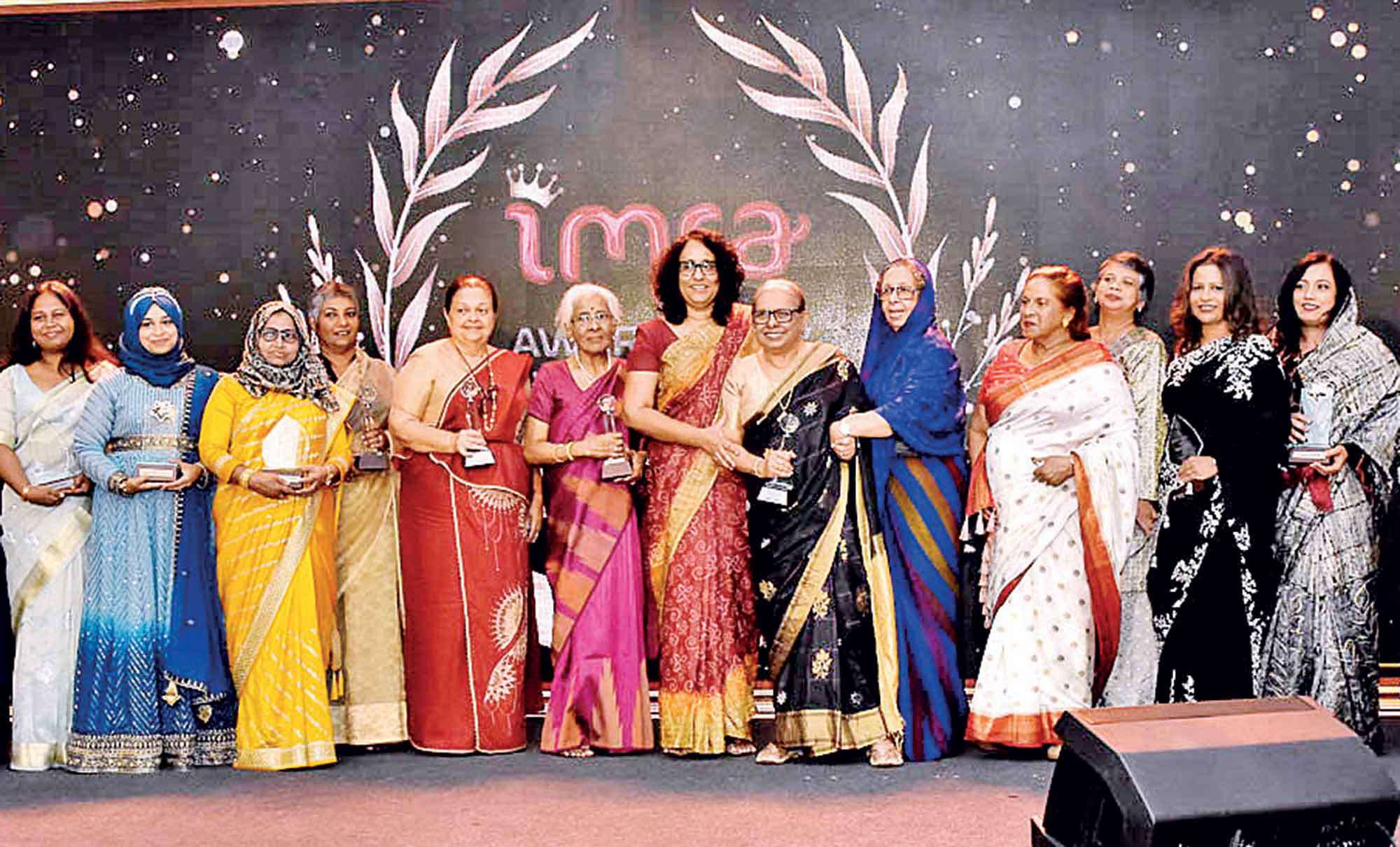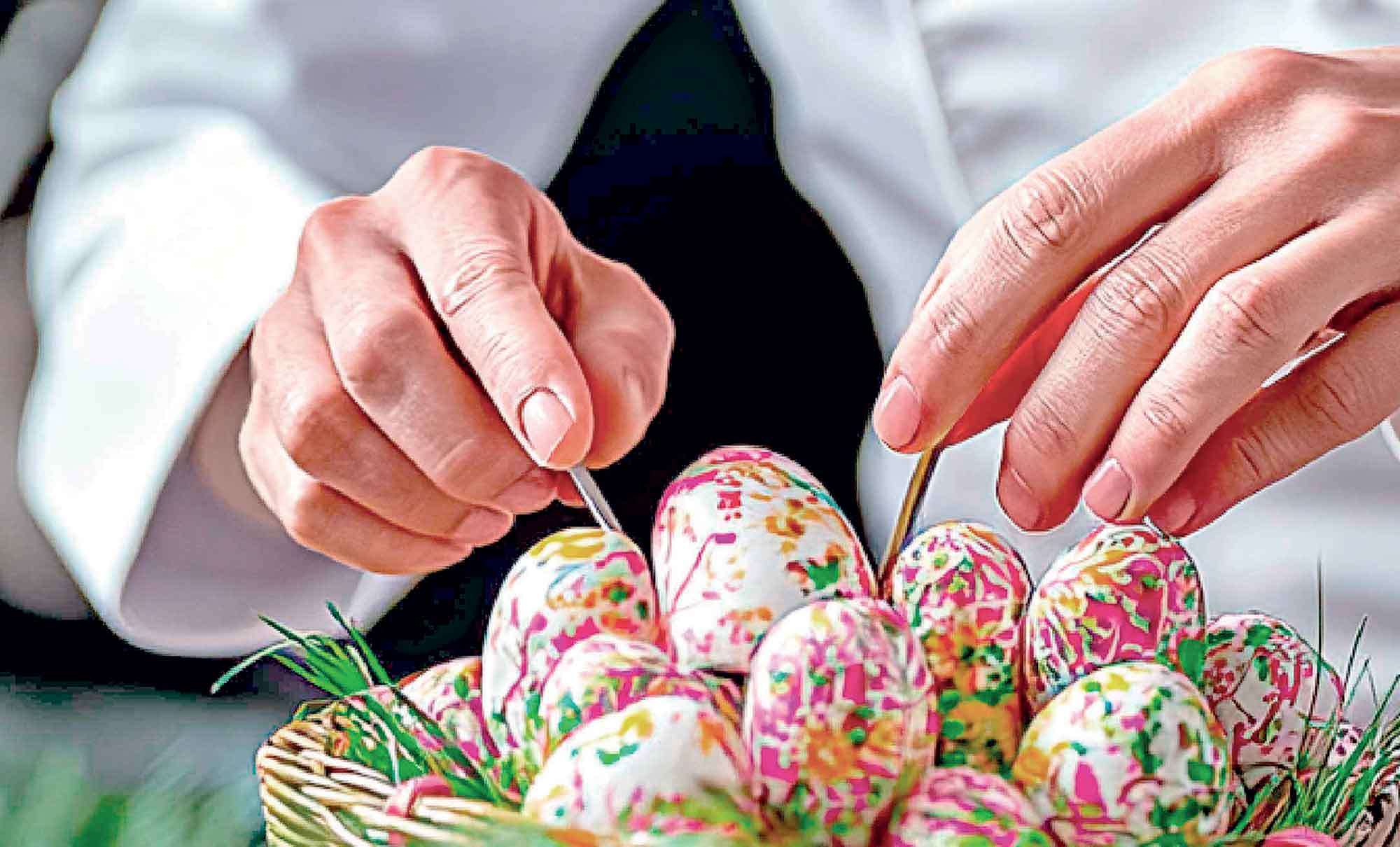By: Rishini Weeraratne
On this International Women’s Day, we honour the remarkable strength, resilience, and achievements of women everywhere.
This year’s theme reminds us that while we have made great strides, the journey toward equality continues. Let’s celebrate the voices that inspire change, uplift those who need support, and commit to building a more inclusive future.
To all the incredible women reading this; embrace your strength, chase your dreams fearlessly, and never settle for anything less than you deserve. Wishing you a day filled with inspiration, empowerment, and purpose!
Kasturi Chellaraja: Chief Operating Officer, (Head of APAC), 5-Hour International Corporation, Singapore, and Former Group CEO, HEMAS PLC.
Q: What challenges do women in leadership positions still face today?
A: Women leaders continue to face several challenges. One key issue is that many men still struggle with having a spouse in a leadership role, making it difficult for women to receive the support they need; especially in sharing household responsibilities. While organizations appreciate the impact women leaders create, they often face greater scrutiny than their male counterparts, living under constant observation, like being in a “glass bowl.” It’s essential that we acknowledge these challenges and actively support women in leadership to create a more equitable and empowering environment.

 Rajitha Jayasuriya: Group Legal Director at MAS. First Female Chairperson of Sri Lanka Apparel Exporters Association.
Rajitha Jayasuriya: Group Legal Director at MAS. First Female Chairperson of Sri Lanka Apparel Exporters Association.
Q: What does International Women’s Day mean to you personally?
A: For centuries, women have had an incredible impact in every field, across every corner of the world. And while our achievements have not come without struggle, it also proves that our strength is limitless when we unite in purpose and determination. We must not limit the celebration and recognition of women, whose courage, vision, and perseverance broke barriers, to just one day. While IWD is important, it must also serve a greater purpose, it must be used as a catalyst to inspire more women to continue to push boundaries, challenge norms, and inspire change in their communities, workplaces and in society. There is much work still ahead especially to overcome stereotypes and biases. And as women leaders, our most meaningful achievement will be to inspire every girl to dream big and for us in our own capacity to foster an environment where women can achieve their fullest potential.
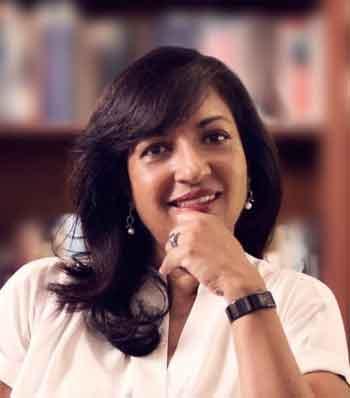 Neela Marikkar: Chairperson, Dentsu Grant Group
Neela Marikkar: Chairperson, Dentsu Grant Group
Q: How has your industry evolved in terms of gender representation, and what more needs to be done?
A: The advertising industry in Sri Lanka is still evolving in terms of gender representation. Brands have traditionally shown ads that depict women in domestic roles, the typical housewife, the family caretaker, or on the flip side the objects of desire. Men on the other hand have been typically shown as the decision maker, the bread winner, the problem solvers. But with the growing consumer demand for authenticity and being real, thankfully that’s beginning to change now as we rightfully show women in professional roles, having successful careers and progressive in their life choices. The other key issue is women always having to be ‘fair’ in complexion which is not real. As Sri Lankans we come in many shades of brown and I think the time has come for us to redefine what beauty is. So, while our advertising industry has certainly taken progressive steps there is much to be done. Change needs continuous effort on the part of brands and agencies. As an industry we need to do much more in this area. It’s still work in progress.
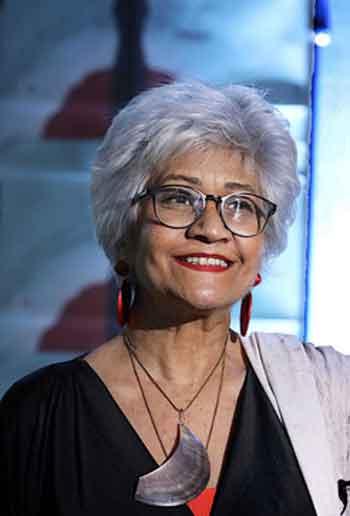 Anoma Wijewardene: Artist
Anoma Wijewardene: Artist
Q: What is one stereotype about women that you wish would disappear forever?
A: These are the best of times and the worst of times for women. Individual women are breaking glass ceilings, becoming Presidents and Prime Ministers, heading corporations, flying into space as astronauts, winning Nobel prizes in the sciences and fighting on the frontlines with male soldiers. At the same time violence against women throughout the world is on the rise and the vast majority of women are involved in care work in the family without any relief or support. In war zones they are killed, maimed, and cower as bombs and drones destroy their families and every fabric of their society. In some countries they are denied schooling, employment and cannot leave home without a male relative. Women in many strata of society face sexual harassment and abuse with certain cities being notorious for its high incidence of rape. In all societies they still remain victims of misogyny, dismissed and diminished in everyday life. Yet women comprise 49.72% of the global population. In that sense the fight for women’s freedom is only beginning. There is so much more to do. This work celebrates the magnificent power embodied in women to overcome devastation and emerge transformed, just as the earth renews itself after every catastrophe.

Sandamini Perera: Co-Founder and Co-Chairperson of Prime Lands (PVT) Ltd
Q: What has been the most defining moment in your journey as a woman in your field?
A: Embarking on my real estate journey without capital, experience, or a recognized brand, I was driven by an unyielding desire to succeed. From the outset, I envisioned Prime becoming a household name in Sri Lanka, guiding every decision and strategy. One of our boldest ventures was initiating “The Grand,” the only high-rise luxury apartment in Colombo 07. This monumental challenge, once completed, stood as a testament to our commitment to excellence. Our ambition didn’t stop at national borders. Venturing into markets in Australia and Dubai marked significant milestones. Establishing Prime Group’s presence in Dubai showcased our dedication to innovation and excellence. These experiences have been instrumental in shaping my journey, reinforcing the values of perseverance, vision, and bold decision-making in the real estate industry.
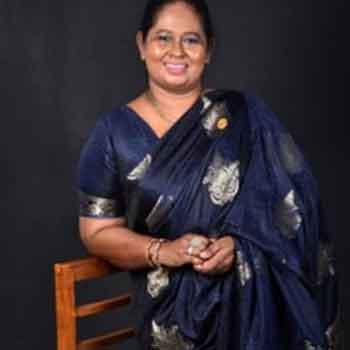 Dr. Sulochana Segera: Founder and Chairperson, Women in Management
Dr. Sulochana Segera: Founder and Chairperson, Women in Management
Q: What progress have you seen in gender equality in Sri Lanka over the years?
A: Over the years, Sri Lanka has made notable progress in raising awareness on gender equality, with more women stepping into leadership roles, entrepreneurship, and sectors traditionally dominated by men. We’ve also seen greater advocacy for women’s rights, improved access to education, and stronger networks supporting women’s economic participation. However, true gender equality goes beyond visibility. There are still critical gaps in areas such as workplace equity, equal pay, protection from harassment, and access to funding for women-led businesses; particularly in rural areas. Progress is happening, but it requires continuous commitment from both the public and private sectors to create sustainable change that reaches every woman, regardless of her location or background.
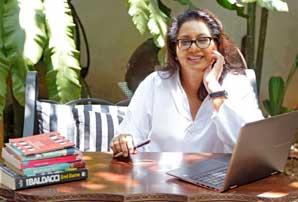 Niloufer Esufally Anverally: Founder, Cotton Collection. Managing Director, Leather Collection.
Niloufer Esufally Anverally: Founder, Cotton Collection. Managing Director, Leather Collection.
Q: How do you think Sri Lanka can better support women entrepreneurs and business leaders?
For a country that has an abundant wealth of ambitious and highly talented women entrepreneurs, what we need is a much more supportive ecosystem to help them unlock their true potential. For many women, the real challenge lies in maintaining a healthy work-life balance. We need to implement better support systems, such as affordable childcare, flexible work environments, improved maternity benefits, and an overall cultural shift towards shared domestic responsibilities. In my thirty years of retail experience, sadly I’ve seen many young women leave their positions immediately after marriage due to various family pressures. It's crucial to shift the cultural expectation engrained in us, that after marriage a woman’s career comes second. The importance of education and skill development cannot be overstated, young girls should be given the opportunity to be empowered through education and taught the value of independence. Education should not just teach women skills, but also empower them to believe in their potential. There must be training programs to equip aspiring female entrepreneurs with essential skills, such as financial literacy and digital marketing, to help them scale their businesses successfully. For many women entrepreneurs, another challenge lies in the acquisition of capital for their ventures. An introduction of grants and dedicated investment programs for women led businesses is vital to help propel them further. This is sure to be real game changer for women entrepreneurs and business leaders across the country. By addressing these key areas, Sri Lanka can foster an environment, where women entrepreneurs and leaders don’t just survive but thrive, all the while driving innovation, economic growth, and social progress.

Angeline Ondaatje: Managing Directress, Tangerine Beach Hotels PLC.
Q: What advice would you give to young girls who aspire to break barriers in their careers?
A: The world is changing at such a rapid pace. Keep evolving, and learning to learn and adopt to technology and diverse disciplines so that you are not left behind in your career. Barriers are in the mindset, and they can be broken if you believe in yourself and challenge the norms.
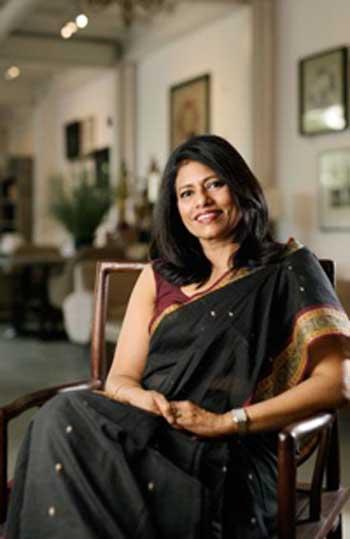
Dehara Gomes: Founder, Westgate Interiors and Gandhara.
Q: What message do you have for women who are struggling to balance work, family, and personal growth?
We all know times have changed, but the substance of what is on a woman’s plate is still the same. We do wear many hats. While being accountable for our professional lives and responsible for the lives under our care, we sometimes inadvertently put ourselves last. As women, from a very young age, societal conditioning has normalized that it is okay for women to struggle quietly. I have had the privilege of having a supportive family, who have been resourceful pillars of strength throughout my life; I acknowledge that with utmost gratitude. The struggles of women vary because we have experienced different walks of life. Yet to each woman, her struggles must be validated first from her own heart. From there she must learn to prioritise her own wellbeing, because wonders happen when she takes that step to take care of her mental, physical, and spiritual health. She will be able to excel at work, while also keeping her family healthy and happy. I believe practicing effective time management will help women prioritise themselves better, no matter how difficult life gets. The only thing that surpasses the wonder of a woman is her resilience; so never give up, and never quit.
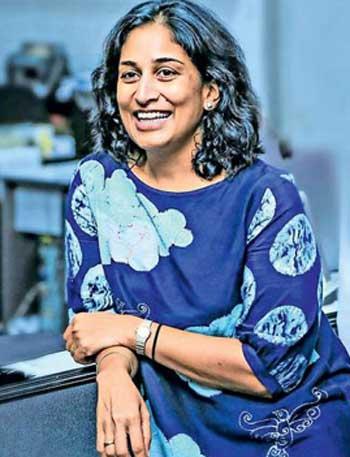
Varuni Amunugama Fernando: Joint Managing Director, Triad.
Q: What initiatives or policies would you like to see the Sri Lankan government implement for women’s rights?
A: Sri Lanka has long had initiatives and policies in place to protect and empower women, but the real challenge lies in their implementation. Despite repeated discussions by successive governments and activists on what needs to be done, there remains a significant gap between policy and action. The key is to identify and prioritize what is most essential; above all, economic independence. Addressing women’s financial vulnerability requires fostering an entrepreneurial mindset, which is far more effective than the superficial gestures often associated with International Women’s Day. What we need now is not more rhetoric but the firm and decisive execution of existing policies. It’s time to move beyond words and deliver what is rightfully owed to the women of Sri Lanka.
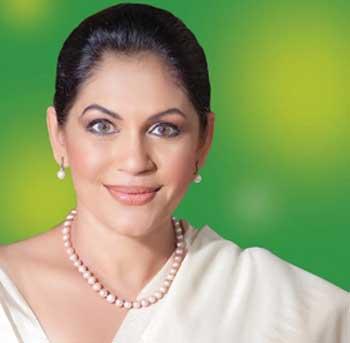
Rosy Senanayake: Mayoress of Colombo
Q: What is one piece of advice you would give to your younger self about being a woman in today’s world?
A: Avoid comparing yourself to others; each of us is uniquely created with our own strengths, weaknesses, and experiences. When you focus on competing with someone else, you miss the joy of your own journey. Believe in yourself, speak your truth, and don’t fear making mistakes, they are essential to growth. Most importantly, navigate life with kindness and empathy.
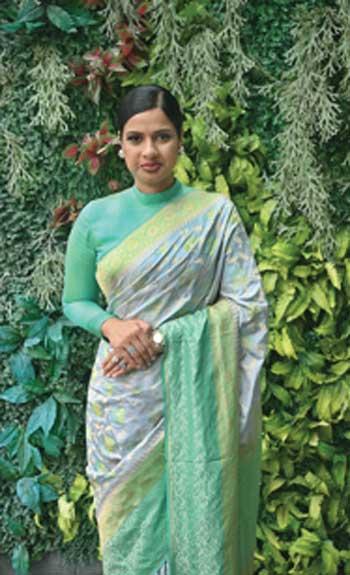 Zahara Abdeen: Director, Abdeen Jewellers (PVT) Ltd and CEO, Zest Metropole.
Zahara Abdeen: Director, Abdeen Jewellers (PVT) Ltd and CEO, Zest Metropole.
Q: Do you think Women’s Day celebrations make a tangible impact, or do we need more action beyond the day?
A: Women’s Day celebrations are important as this raises awareness and support women making them feel special and important. This requires action beyond just one day!
- Real progress happens through continued commitment through workshops, programmes to support policies that promote gender equality through social media, as women are engaged in playing many roles in a day, this would be the most effective way to spread the message.
- Simple reels that would highlight the importance of gender equality in the place of work, in the pay they receive for their services, and workplace rights.
- Bringing awareness to the public to choose to support and purchases items from women entrepreneurs and how this can make a change in their lives.
- Celebrate and make it a special day for all girls’ schools.
- A day to remember for all Girls Schools across the country conducting various workshops educating schoolgirls to becoming future leaders in politics, business, and media.
 Anshu Bahanda: Founder, Wellness Curated
Anshu Bahanda: Founder, Wellness Curated
Q: How do you think social media has influenced the women’s empowerment movement globally?
A: Social media has given women a powerful global voice, enabling them to connect with and support one another from anywhere; whether at home or in the workplace. It has reinforced the idea that no woman is alone on her journey to empowerment; she is part of a vast network of friends, sisters, and allies across the world striving toward similar goals. This digital space has not only amplified women’s voices but also strengthened their influence. I’ve come across countless women using social media to share their knowledge and skills, whether as doctors, healers, therapists, engineers, comedians, leaders, or creators of home remedies. Each one now has a platform to connect with like-minded individuals and offer guidance to those who need it.
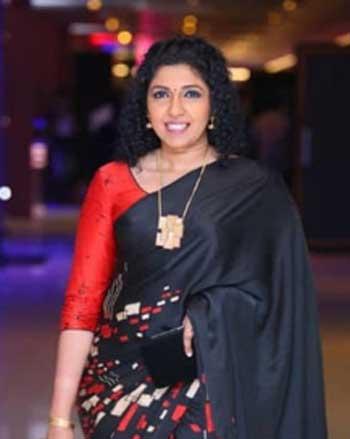
Soundarie David: Founder, Soul Sounds
Q: If you could change one thing for women in Sri Lanka today, what would it be and why?
A: I believe that change isn’t something we need to wait for; women themselves are the change-makers. Many have already proven this through their strength and resilience. Yet, countless women continue to juggle multiple roles, often serving as peacemakers both at home and in the workplace. Their contributions, though vital, often go unnoticed. It’s time to acknowledge and give them the recognition they rightfully deserve for the invaluable roles they play.
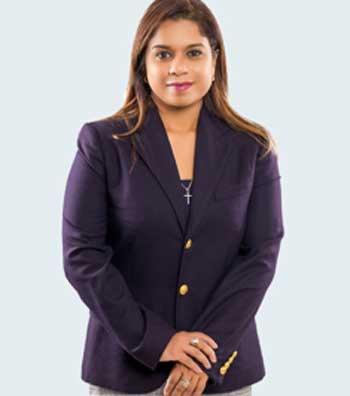 Shehara De Silva: Managing Director, McLarens Group of Companies
Shehara De Silva: Managing Director, McLarens Group of Companies
Q: How can men be better allies in the fight for gender equity?
A: Last night, I watched an incredible movie called ‘Six Triple Eight,’ which tells the story of the first African American women’s corps in the U.S. Army during World War II. The film powerfully portrays the inhumane treatment and harassment these women endured at the hands of white male officers, yet despite such unfairness, they persevered and proved their worth. Throughout history, men have ranged from being outright adversaries of women’s progress (more so in the past) to subtler forms of resistance; such as limiting opportunities for women in the workplace or society. However, in today’s world, we are seeing a shift, with many men becoming champions of women’s empowerment and ambassadors for gender equality initiatives. At the core of this transformation lies the need for a mindset shift. True progress happens when both men and women recognize their differences without making sweeping generalizations based on gender. Instead, we should appreciate each individual’s unique abilities and work together without the filter of gender bias. Women, too, play a role in shaping how men perceive and engage with them. While extreme feminist movements that create division may not always be the best approach, a focus on gender equity rather than just equality offers a more constructive way forward. Men can be powerful allies in this journey by actively standing up against sexism and discrimination, supporting women in leadership roles, and advocating for policies that empower women in the workplace. On a broader level, true allyship also involves taking an equal share of household responsibilities and childcare, instilling values of respect and fairness in younger generations, and participating in policy reforms that drive meaningful social change. Real progress will only be achieved when men and women work together as partners, not competitors, in building a more equitable world.

Mahesha Weeraratne Amarasuriya: Director, Mastercard, Sri Lanka
Q: Who is a woman that has inspired you in your journey, and why?
A: In general, I have immense admiration and respect for all the women who have triumphed over challenging circumstances, continuing to fight and smile through it all. However, on a personal level, the woman who has profoundly influenced me is my mother. She is the epitome of kindness, care, and selflessness. She has instilled in me the core values of honesty and integrity, which have guided me throughout my journey. I deeply look up to her and am forever grateful for her unwavering support and inspiration.
 Aruni Goonetilleke: Former Chairperson, HNB PLC and Independent Non-Executive Director, John Keells Hotels.
Aruni Goonetilleke: Former Chairperson, HNB PLC and Independent Non-Executive Director, John Keells Hotels.
Q: What changes would you like to see in Sri Lankan workplaces to promote gender equality?
A: According to the World Economic Forum’s Global Gender Gap Report, despite significant efforts, it will take another 134 years to close the gender gap. While Sri Lanka performs well in health, survival, and education, it ranks poorly in economic participation and political empowerment. The question is no longer why gender equity matters, but why progress isn’t meeting expectations. Why are educated, healthy women not reaching the workforce or rising to leadership positions? Many companies have Diversity, Equity, and Inclusion (DEI) programs, yet they often fall short, reduced to mere “tokenism” or “virtue signalling.” Diversity is a statistic, but inclusion is a mindset. Programs tend to focus on metrics, how many women in the workforce, in management, or on boards, without addressing the deeper structural issues. For instance, while female board representation in listed companies has risen to 13%, the number of women CEOs and top executives remains disproportionately low, especially in business and IT. Instead of parachuting women into leadership to meet quotas, organizations must nurture talent from the ground up, ensuring sustained career growth. True inclusion requires examining company culture and microstructures. Are diverse perspectives valued? Do unconscious biases persist? Are women systematically excluded from leadership pipelines through “boys’ clubs” or limited to HR and PR roles? Leadership must set the tone, fostering workplaces where women feel valued, supported, and mentored. DEI must be embedded in company culture, not just an HR checkbox but a fundamental driver of organizational success.
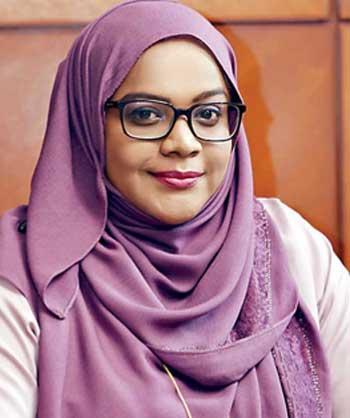 Zahara Ansary: Country Head (Sri Lanka and Maldives), Cambridge University Press and Assessment
Zahara Ansary: Country Head (Sri Lanka and Maldives), Cambridge University Press and Assessment
Q: What role does education play in empowering Sri Lankan women?
A: Education empowers women in Sri Lanka to lead dignified lives, achieve career aspirations, and support their families. It serves as a transformative tool across all societal strata, enhancing skills and qualifications for better job prospects and economic independence. Educated women are more equipped to make informed financial, health, and legal decisions, fostering confidence and self-esteem that encourages active community participation and leadership. As women increasingly contribute to Sri Lanka's economy, education at all levels is essential for navigating the challenges posed by societal stereotypes throughout their lives. It promotes financial independence and broadens career choices, whether in business or professional fields. Ultimately, educating a woman means educating an entire generation, paving the way for future empowerment and societal progress. Through education, women can break free from traditional barriers, driving change and fostering a more equitable society.




